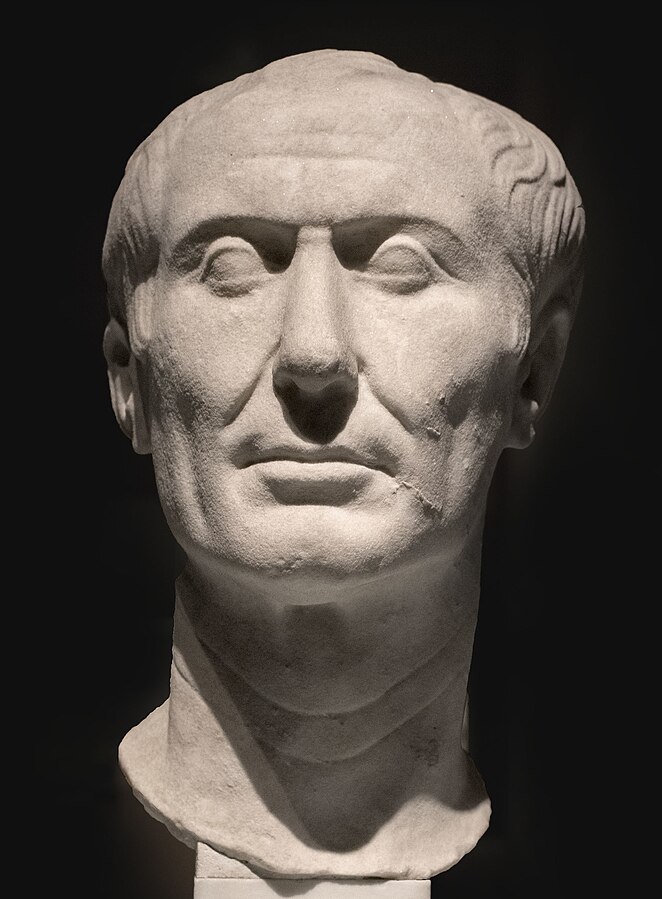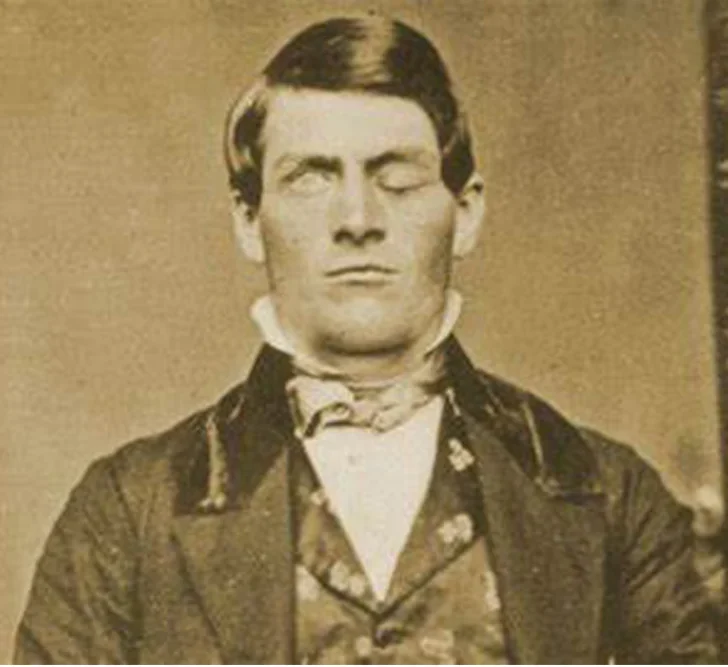Cleopatra is almost universally synonymous with ancient Egypt. Films and other art forms have explored the fascinating story of her life through the ages.
When you hear her name, you may think of one of the great actresses who have brought her story to life, most famously Elizabeth Taylor, who portrayed Cleopatra in the 1963 film of the same name.


The real story of Cleopatra’s life is just as fascinating, though it may lack some of the glamour of the silver screen.
While popular culture has branded her as stunningly beautiful, Cleopatra was more intelligent and charismatic than modern tales of her beauty may suggest.
The Egypt Cleopatra Inherited
When we think of ancient Egypt, we imagine huge glittering pyramids, golden headdresses, and gods with animal heads. While some of the inspiration for this iconography was present when Cleopatra ruled Egypt, the landscape of her home was much different than we think.
Today, it’s common knowledge that Cleopatra was born closer to modern times than the building of the pyramids. Her rule was 2100 years ago, while the Great Pyramid was built more than 4,000 years ago.
The pyramids and all they represented were still alive in Egyptian culture by the time she was born, but her Egypt was very different.
By the time of Cleopatra, Egypt was in its last dynasty – the Ptolemaic Dynasty. This period of Egypt’s history was named after Ptolemy, a commander in Alexander III’s army. Ptolemy ruled Egypt after Alexander’s conquest freed it from Iranian rule.
Some believe that Egypt was a client state of Rome during the time of Cleopatra’s reign. However, this isn’t exactly true. About 30 years before her birth, the rulers of Egypt received financial support in the form of loans from the Roman Empire.
When they were assassinated, Egypt was willed to Rome as collateral. In this arrangement, Egypt was independently governed but beholden to Rome.
Cleopatra was born when Egypt was no longer the largest civilization in the world. By this time, the known world was constantly in flux between the major powers of the day – and Egypt wasn’t one of them.
Rise Of A Legend
Cleopatra was born in 70 BC as Cleopatra VII Thea Philopator. She was the oldest child of Ptolemy XII Auletes. After her father died in 51 BC, she ruled jointly with her younger brother, Ptolemy XIII. She was the only Ptolemaic ruler in the dynasty to learn the Egyptian language.
Until she came to power, most Ptolemaic rulers were separate from the practices, religion, and beliefs of the Egyptian people.
They didn’t learn the language or take on any traditions from Egypt, which was a departure from the Egyptian rulers of the past. The pharaohs of old were intimately intertwined with religion and belief, making the Ptolemaic rulers startlingly different.
Cleopatra herself was Macedonia-Greek. Though she wasn’t Egyptian, she fashioned herself the ‘new Isis’. Isis was an Egyptian goddess who took on the roles of mother, healer, and role model for all women.
This integration with some Egyptian customs made Cleopatra stand out among other rulers of the dynasty.
However, the events of her life would immortalize her for more than just her willingness to connect with her subjects.
Ptolemaic Civil War
Ptolemy VIII was around 10 years old when his father died, so he couldn’t rule alone. He ruled jointly with Cleopatra, who was about 8 years older than he was. At the time, Cleopatra was the leading ruler.
Her name came first on official documents, and she made most of the decisions needed to keep Egypt running.
However, something changed around 50 BC. In October of that year, her brother’s name began to come first on official documents. It is suspected that Ptolemy tried to assassinate Cleopatra and take sole rule for himself, likely at the behest of his advisors.
As a result, Cleopatra fled to Syria. While she was there, she raised an army. In 48 BC, she returned to Egypt to face her brother and attempt to retake her throne.
The Arrival Of Caesar
The civil war between Cleopatra and Ptolemy was interrupted by the arrival of Pompey the Great.
Pompey was Julius Caesar’s rival. He lost the battle of Pharsalus and fled to Egypt for safe refuge, believing that Ptolemy would honor his father’s allegiances.

Pompey was also the state-appointed guardian for Ptolemy and his younger brother, so he was sure he would be received with open arms.
Ptolemy’s advisors, particularly the cunning Ponthinus, had different ideas. They urged Ptolemy to get rid of Pompey to avoid drawing the ire of the Roman Empire. On Ptolemy’s order, Pompey was assassinated as he landed in Alexandria.
Caesar, however, was on Pompey’s trail. After his victory, he sought to chase him down and hold him accountable for his actions. He arrived in Alexandria shortly after Pompey’s assassination with a small legion of soldiers to attempt to bring Pompey to justice.
When he learned that Pompey was already dead, he turned his attention to the civil war between Ptolemy VIII and Cleopatra. He thought it would cause problems for Rome if the siblings continued to feud, so he decided to stay and settle the dispute.
He leveraged his power as the dictator of Rome to order the siblings to reconcile publicly. Ptolemy and his advisors chafed at this, suggesting that Caesar should return to Rome and see to his own concerns.
Cleopatra, however, was more than willing to ally herself with Caesar if it meant she might regain her throne.
The Siege Of Alexandria
Caesar summoned Cleopatra to meet with him at the palace in Alexandria, where he had taken up residence when he arrived. However, her brother’s guards were still aware of any movements in and out of the palace.
To avoid his notice, she famously bundled herself in dirty laundry (or a rug, depending on who was telling the story) to sneak in undetected.
Ptolemy soon laid siege to the palace, trapping Cleopatra and Caesar inside for the winter. The two became lovers during the siege, and Cleopatra fell pregnant with Caesar’s child.
When the Roman reinforcements arrived in spring, the show of force caused Ptolemy to flee from Alexandria. He ultimately drowned in the Nile, ending the opposition to Cleopatra’s rule.
She soon married her younger brother Ptolemy XIV and gave birth to Ptolemy Caesar, or Caesarion, in June of 47 BC.
Cleopatra, Reinstated
With her troublesome brother gone, Cleopatra regained the throne. For a time, there was peace. Caesar spent the next two years squashing the remaining opposition from Ptolemy XIII’s supporters and returned to Rome in 46 BC.
Cleopatra visited him at his private estate in Rome at least once after he left, but their affair was short-lived. Of course, Caesar was assassinated in 44 BC.
He never publicly acknowledged his son or named Caesarion his heir, which would cause a lot of trouble for Cleopatra years later.
Caesar’s heir was his nephew Octavian, a sickly boy who was in no position to rule. Instead, Mark Antony stepped up to take hold of Caesar’s power after his death.
The Infatuation Of Mark Antony
Mark Antony was a powerful Roman who was the best candidate to take up Caesar’s rule. After Caesar was assassinated, Mark Antony summoned Cleopatra to explain her role in the aftermath.
She delayed her arrival for some time to build anticipation, which was calculated; when she finally arrived, Mark Antony was so enamored that he returned to Alexandria with her.
Even though he was already married, Antony began an affair with Cleopatra that would last the rest of his life. In 40 BC, Cleopatra gave birth to twins – a son and daughter named Alexander Helios and Cleopatra Selene.
During this time, Antony returned to Italy to try and settle his disputes with Octavian, Caesar’s nephew. The boy believed he should have the right to Caesar’s power, and Antony attempted to smooth things over with him by marrying his sister.
Unfortunately, this failed to settle the dispute. He realized that he would never see eye-to-eye with Octavian, so he returned to Alexandria. It was time, he thought, to ensure his absolute rule over as much of the known world as possible.
He had put off his Parthian campaign due to the issues with Octavian, but now he needed Cleopatra’s financial support to carry it out.
In return, Cleopatra requested that Egypt’s eastern empire be returned to her. She wanted the parts of Syria, Lebanon, and Jericho that were under Roman rule to become part of Egypt again.
This was ultimately settled, but Antony’s campaign was a failure that may have indicated a turning point in his career. During this time, Cleopatra gave birth to another son named Ptolemy Philadelphus.
In the aftermath of his failed campaign, Antony divorced Octavian’s sister and brought his family to Rome. He declared publicly that Caesarion was Caesar’s son, and therefore his legitimate heir. This pushed Octavian to act against them.
The Influence Of Octavian
Octavian’s response was a smear campaign that has persisted through the ages. He encouraged rumors that Antony was more interested in Cleopatra than Rome and would give all of Rome to a foreign woman rather than protect his interests at home.
This propaganda campaign painted Cleopatra as an immoral seductress who targeted Caesar and Antony for her own political gain.
This vision of Cleopatra has persisted through to the modern day. It has colored every portrayal of her in popular media and tarnished her character beyond repair. However powerful that image is now, it was even more so while Cleopatra was alive.
In the winter of 32 – 31 BC, the Roman Senate declared war against Cleopatra. They reduced the power Antony held within the Senate, trying to save Rome from the threat they imagined Antony and Cleopatra posed. This was exactly what Octavian wanted.
He soon brought his naval forces against Antony and Cleopatra in Greece, which culminated in the battle of Actium. Octavian was victorious, and the pair fled back to Egypt.
The Death Of Cleopatra
Soon after, Antony left Cleopatra in Egypt to fight another battle against Octavian. He was told, no doubt by those allied with Octavian, that Cleopatra had died. He fell on his sword in grief.

He had himself carried back to her as he was dying and advised her to make peace with Octavian. This, she would not do. She committed suicide after he died, though we don’t know the manner of her death.
Popular culture has taken liberties with this detail, and some classical writers have speculated that she died by the bite of an asp, a symbol of royalty. If she took her own life via snake, it would have more likely been an Egyptian cobra that struck the killing blow.
Either way, she and Antony were buried together after their deaths. She was only 39 years old.
Of her four children, only three would survive. Octavian had Caesarion killed, as he was a direct threat to Octavian’s rule; meanwhile, her three children with Antony were sent to Rome, where Octavian’s sister raised them.
Cleopatra’s Legacy
The story of Cleopatra, Caesar, and Mark Anthony has captured the imagination of writers, filmmakers, and artists for thousands of years. An immoral vision of the power-hungry seductress persists today, despite being perpetuated over two thousand years ago.
Shakespeare’s Antony and Cleopatra revised the impact of Cleopatra’s role in the events during her life, but it is this version of Cleopatra that we are most familiar with in the modern day.
His play inspired the popular culture and Western imagining that surround Cleopatra’s legacy today. Outside of the silver screen, Cleopatra’s likeness is used to promote the idea of extreme beauty.
However, the ancient writers who spoke of Cleopatra almost universally praised her charm, charisma, and intelligence rather than her beauty.
More than likely, Cleopatra was an average-looking woman whose presence captured attention wherever she went. She knew how to make an entrance.
Only someone with the charisma of a modern-day movie star could sway everyone in her orbit to her cause, and it was only through Octavian’s aggressive propaganda campaign that she lost favor.
Sources
https://www.britannica.com/biography/Cleopatra-queen-of-Egypt
https://www.worldhistory.org/Cleopatra_VII
https://arce.org/resource/cleopatra-great-last-power-ptolemaic-dynasty
https://www.worldhistory.org/article/2373/mark-antonys-parthian-campaign












Leave a comment